Maria Sharapova showed 'courage' over failed drugs test - Serena Williams
- Published
Sharapova displayed courage - Serena Williams
Maria Sharapova showed "a lot of courage" for accepting responsibility for her failed drugs test, says world number one Serena Williams.
Five-time Grand Slam winner Sharapova, 28, revealed on Monday that she tested positive for meldonium at the Australian Open in January.
"Most people were surprised and shocked but happy that she was upfront and very honest," said Williams, 34.
"It's just taking responsibility, which she admitted she was ready to do."
Sharapova's ex-coach Nick Bollettieri said the Russian's test was a "game-changer for life, not just for tennis".
The 84-year-old American told BBC Radio 4's Today programme he was shocked former world number one Sharapova tested positive because "she has always been above board in everything".
More on Sharapova |
|---|
Meldonium, which Sharapova said she has taken since 2006 for health reasons, became a banned substance on 1 January 2016.
The 2004 Wimbledon champion tested positive after losing to Williams in the Australian Open quarter-finals on 26 January.
The International Tennis Federation (ITF) said Sharapova will be provisionally suspended from 12 March. She faces up to a four-year ban.
How to make sure you won't fail a drugs test
Bollettieri said he believed former world number one Sharapova had made a "very honest mistake".
"She said she took these for many, many years and then didn't read the memorandum that came out," he said.
"I don't think that Maria Sharapova would continue doing something, especially being in the limelight, if there was something she knew about."
Bollettieri said he hoped the tennis authorities would allow Sharapova, who won Wimbledon as a 17-year-old in 2004, to play again.
"It's kind of tough to find a black mark against her," he said. "She certainly does not want to go out of tennis in this way."
Maria Sharapova reveals Australian Open failed drugs test
Sharapova has been the highest-earning female athlete in the world in each of the past 11 years, according to the Forbes list. Her career earnings from tennis alone amount to almost £26m.
Sportswear company Nike said it was ending its association with her until investigations are complete, while Watch manufacturer Tag Heuer said it does not plan to extend her contract.
Porsche has postponed planned activities with the player, and mineral water company Evian says it will closely follow the investigation.
"I did fail the test and take full responsibility for it," said Sharapova, who has also won the French Open twice and the Australian and US Open.
She said she has taken meldonium after being given it by her "family doctor", but had known it as mildronate.
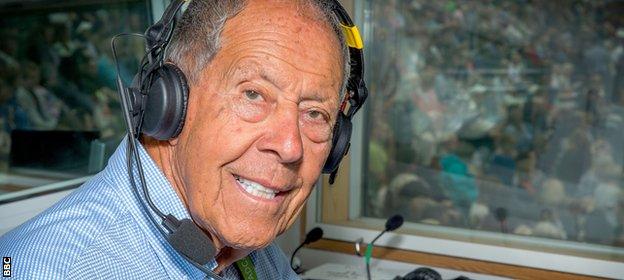
Nick Bollettieri has also worked with Andre Agassi, Jim Courier, Monica Seles and Mary Pierce
Meanwhile, Russian Tennis Federation president Shamil Tarpishchev says he expects Sharapova to play at the 2016 Olympics in Rio starting on 5 August.
"This is just a load of nonsense," he told the TASS news agency.
"The sportsmen take what they are given by the physiotherapists and by the doctors. However, we will need to see how this will develop."
Women's Tennis Association (WTA) chief executive Steve Simon said of Sharapova's ban: "The range that has been discussed so far is between six months and four years."
He told BBC Radio 5 live: "It'll be up to the independent tribunal to go through and review it to make that determination."
Former head of UK Sport anti-doping Michele Verroken said a ban could be shorter if Sharapova can prove she needed to take meldonium for medical reasons.
Verroken told BBC Radio 5 live: "The challenge facing Maria Sharapova and her team is to bring forward the diagnostic evidence that she has a condition that required the prescription of this treatment."
Former Wimbledon champion Virginia Wade, won triumphed at the All England Club in 1977, expressed surprise at Sharapova's error.
"She covers every track, she does every single thing that she can to make herself a better players so it seems so bizarre that she would allow herself to fall into a trap like this," she told Radio 5 live.
"Maria is so thorough in every single thing she does, that's one of the incredible attributes that she has.
"I would say that she will get maybe less than a one-year ban but it would eliminate her from the Olympics."
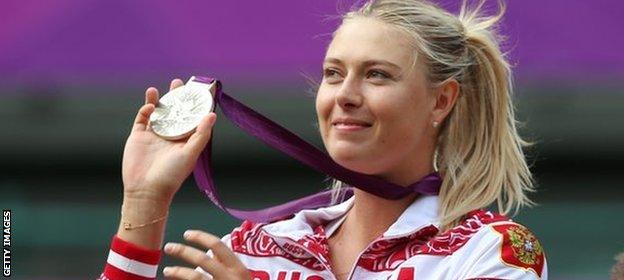
Sharapova won a silver at the 2012 Olympics in London
- Published8 March 2016
- Published8 March 2016
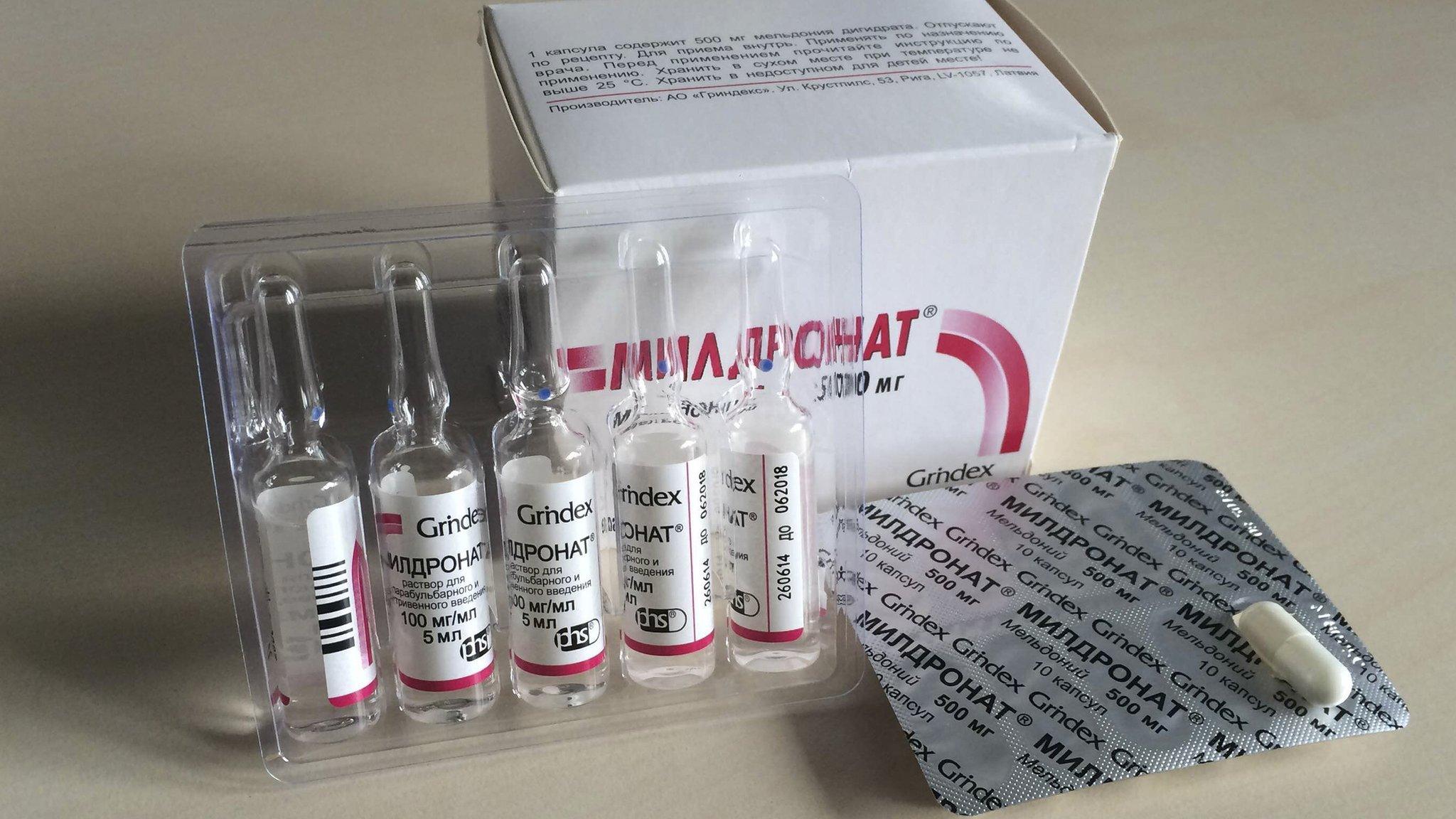
- Published8 March 2016
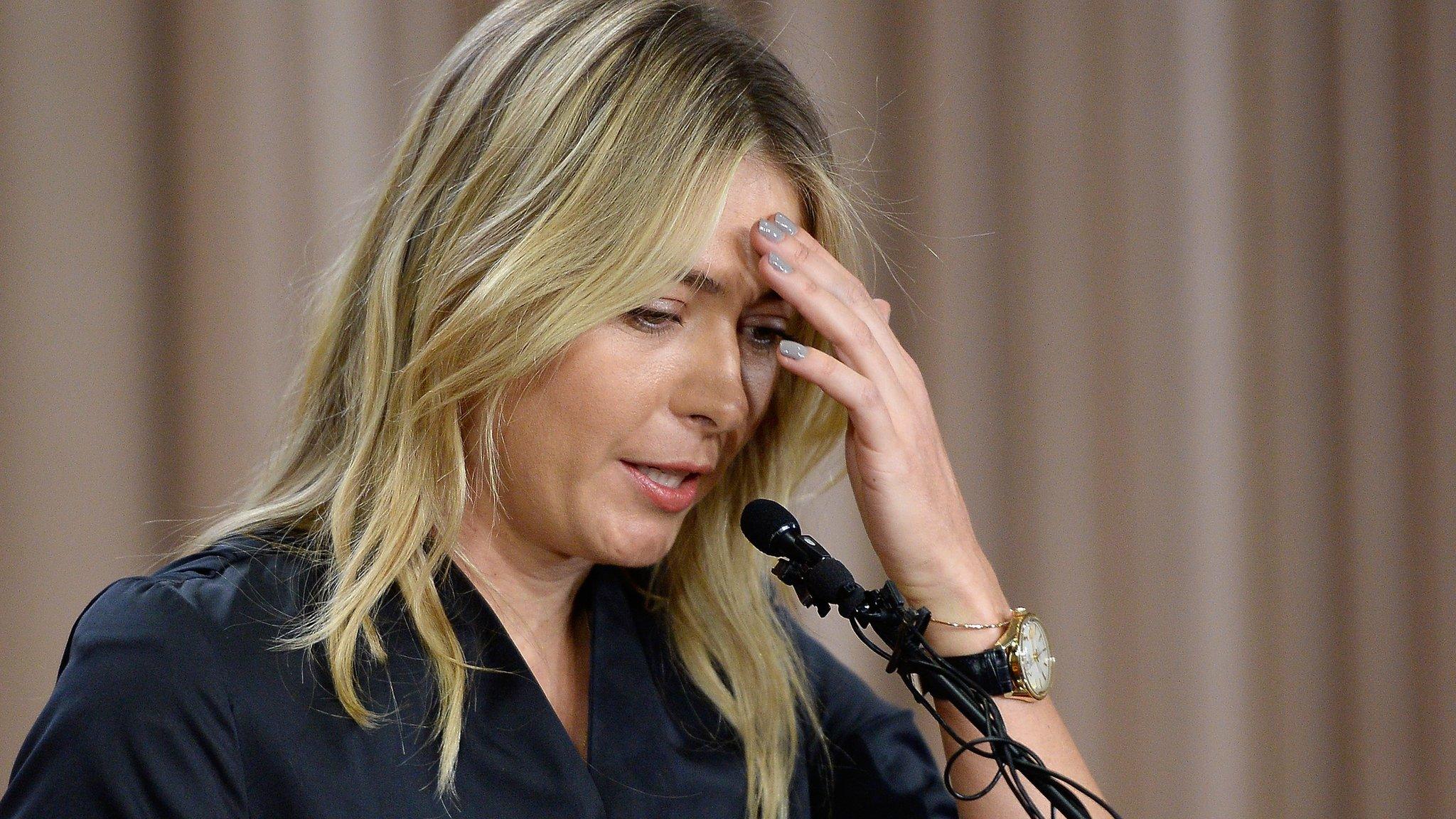
- Attribution
- Published8 March 2016
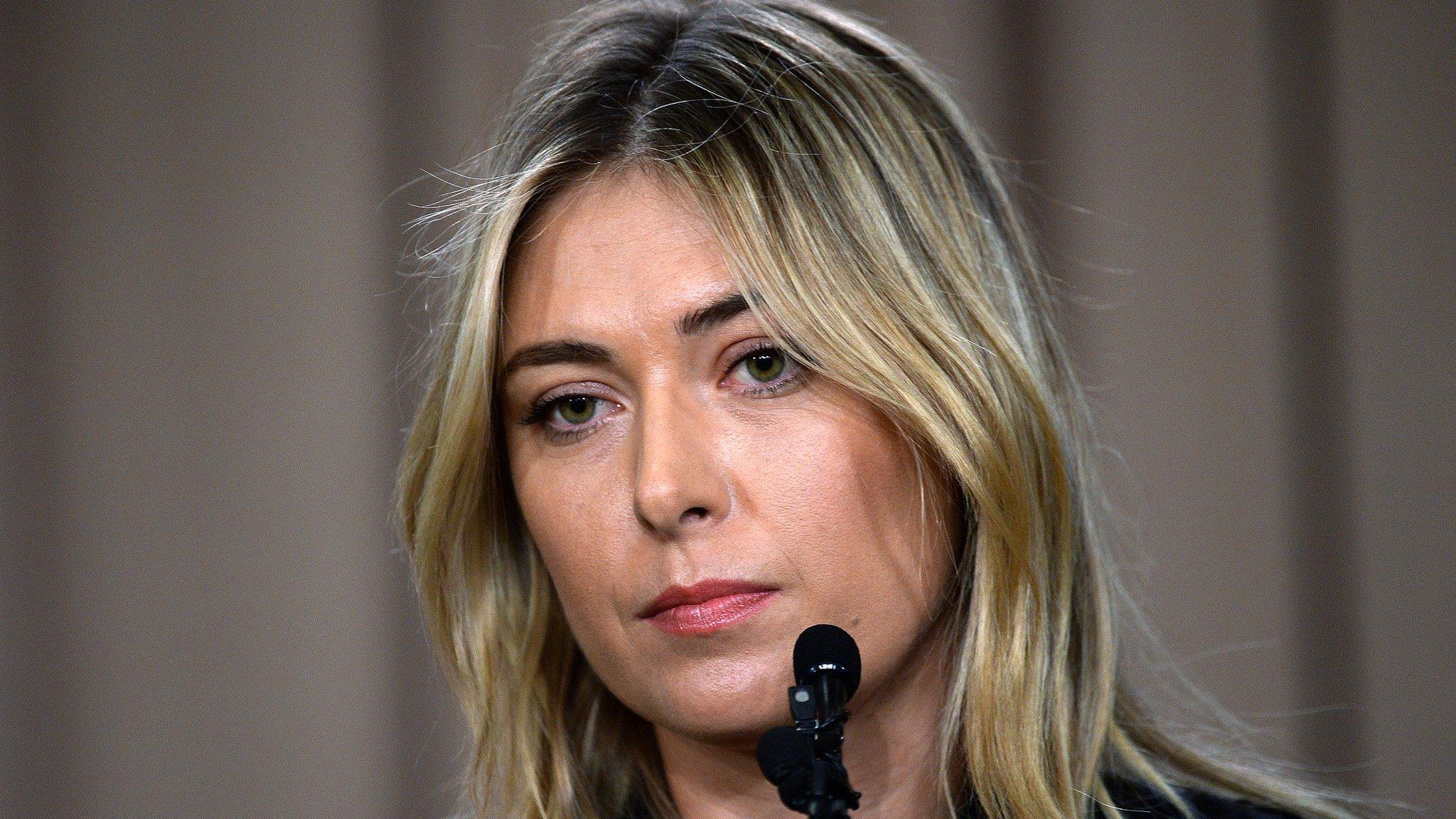
- Published19 July 2016
